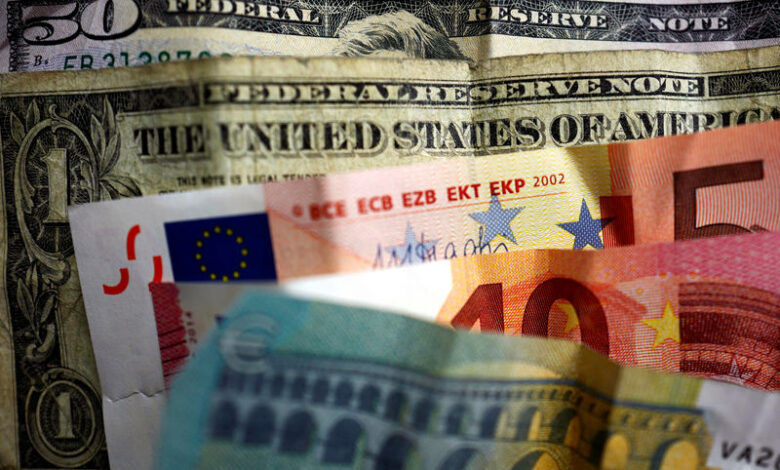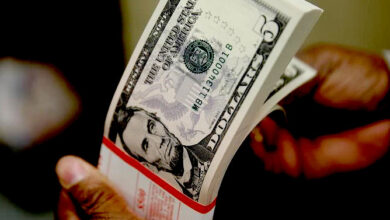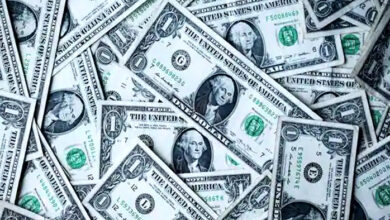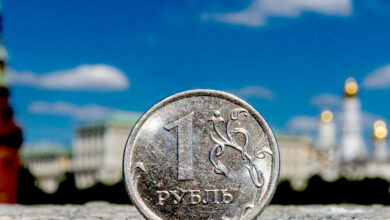The ECB’s hawkish stance hurts the dollar and helps the euro.

In early European trade on Monday, the U.S. dollar fell while the euro jumped to a three-week high as traders reevaluated the European Central Bank’s interest rate path after last week’s big rate hike.
At 3:05 ET (07:05 GMT), the Dollar Index, which compares the dollar to a basket of six other currencies, was down 0.8% to 107.912. This is down from last week’s 20-year high of 110.79.
Last week, the European Central Bank raised its key deposit rate from 0% to 0.75%. This was the biggest increase the bank has ever made, and President Christine Lagarde said that two or three more increases are likely to bring inflation back to the bank’s target of 2%.
Related: As energy shocks develop, a big rate hike won’t save the euro.
This signal of more aggressive monetary tightening has made the euro go up against the dollar. EUR/USD went up 1.2% to 1.0154, which is close to its highest level in three weeks.
In a radio interview on Sunday, Bundesbank President Joachim Nagel said, “Thursday’s step was a clear sign, and if inflation stays the same, more clear steps must follow.”
Reuters reported on Monday that ECB officials see a growing chance that they will have to raise their key interest rate to 2% or more, or at least another 125 basis points, to stop record-high inflation in the Eurozone, even though a recession is likely.
The single currency has also gotten a boost from the news that Ukrainian troops took over a lot of territory over the weekend. This makes it more likely, even if only by a small chance, that Russia will stop invading Ukraine soon.
GBP/USD went up 0.7% to 1.1667, following the euro’s rise against the dollar. However, the latest economic data showed that Britain’s economy grew by 0.2% in July, which was less than expected.
Gross domestic product fell by 0.6% in June, which included two public bank holidays to honour the late Queen Elizabeth’s 70 years on the British throne.
But USD/JPY went up 0.3% to 142.95, moving back toward last week’s 24-year high of just under 145. The yen is still sensitive to changes in interest rates.
Related: The dollar declines; Eurozone inflation data is in the spotlight.
When the Federal Reserve meets next week, interest rates are likely to go up by a large amount again.
Fed Governor Christopher Waller said on Friday that he supports “a significant increase at our next meeting,” and St. Louis Fed President James Bullard called for another increase of 75 basis points, which would be the third increase of this size in a row.
Risk sensitive AUD/USD went up 0.5% to 0.6872, while USD/CNY stayed the same at 6.9265. The yuan is still weak because COVID-19 lockouts continue to threaten a sharp drop in output in the world’s second-largest economy.





